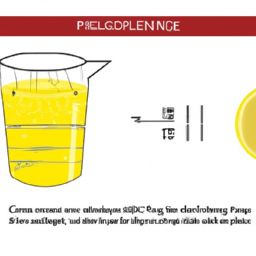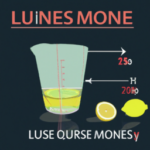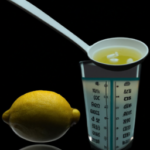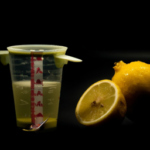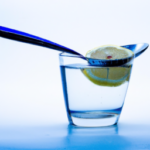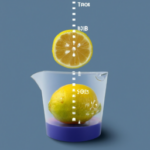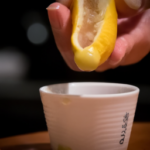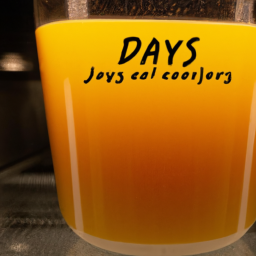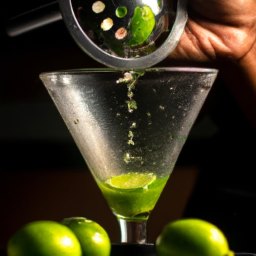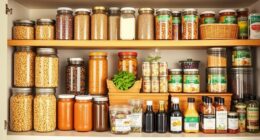I love using lemon juice in my cooking and baking, but I always find myself wondering how much juice I can get from one lemon. It can be frustrating to start a recipe and then realize I don’t have enough juice, or worse, add too much and ruin the dish. This prompted me to do some research to find out the exact amount of juice in one lemon.
In this article, I’ll share what I’ve learned about the factors that affect the amount of juice in a lemon, the tools you’ll need to extract the juice, and how to measure the amount of juice you’ve extracted. I’ll also give you some tips on how to store lemon juice and share some recipes that use lemon juice.
Whether you’re a seasoned cook or a beginner, knowing how much juice is in one lemon is an essential piece of knowledge that will help you create delicious dishes with confidence.
Key Takeaways
- On average, one lemon yields 2-3 tbsp of juice.
- Meyer lemons tend to yield more juice than regular lemons.
- Different extraction methods are available, including hand squeezing, citrus juicer, and fork.
- Lemon juice is rich in Vitamin C and can be used in cooking and baking as a meat tenderizer, preservative, or vinegar substitute.
Factors That Affect the Amount of Juice in a Lemon
You’ll want to consider a few things that’ll impact how much juice you can extract from a lemon. Factors affecting lemon juice yield include the ripeness of the lemon, its size, and its variety.
The amount of juice that a lemon contains can vary depending on these factors. A ripe lemon will have more juice than an unripe one, so it’s best to choose lemons that are fully yellow. Additionally, larger lemons tend to have more juice than smaller ones. Meyer lemons, a type of lemon that’s sweeter and less acidic than regular lemons, can also yield more juice.
To get the most juice out of your lemon, you can use a few different lemon juice extraction techniques. Squeezing the lemon by hand is the most common method, but you can also use a citrus juicer or a fork to extract the juice.
Knowing how to get the most juice out of a lemon is important for cooking and baking, so let’s explore why it’s essential to know how much juice is in one lemon.
The Importance of Knowing How Much Juice is in One Lemon
If you’re not aware of the quantity of citrus liquid a lemon can produce, it may affect the outcome of your recipe. Knowing how much juice is in one lemon is crucial when it comes to cooking.
Lemon juice adds a tangy flavor to dishes, can tenderize meat, and act as a natural preservative. It’s also a common ingredient in salad dressings and marinades, and can even be used as a substitute for vinegar.
Aside from its usefulness in cooking, lemon juice also offers a myriad of health benefits. It’s rich in vitamin C, which is essential for a healthy immune system, and has been shown to improve digestion and liver function. Lemon juice can also be used in skincare, as it helps to brighten and even out skin tone, and can act as a natural exfoliant.
All in all, knowing how much juice is in one lemon is important for both culinary and health reasons.
When it comes to juicing a lemon, there are a few tools you’ll need.
Tools You Will Need to Juice a Lemon
To juice a lemon, all you’ll need are a few basic tools. A sharp knife and a sturdy cutting board are necessary to cut the lemon in half.
Once you have your lemon halves, a handheld citrus juicer is the best option for extracting the juice. While squeezing the lemon by hand is an option, a juicer makes the process quicker and more efficient. There are different types of juicers available on the market, including manual and electric options.
Some juicers are designed specifically for citrus fruits, while others can handle a variety of fruits and vegetables. In addition to lemons, other citrus fruits that are commonly juiced include oranges, limes, and grapefruits. However, it’s important to note that different fruits may require different juicing techniques.
When it comes to extracting juice from lemons, there are a few simple steps to follow. By using a juicer, you can easily separate the juice from the pulp and seeds. With just a few squeezes, you can have fresh lemon juice ready for use in your favorite dish or drink.
Steps to Extracting Juice from a Lemon
Extracting juice from a lemon can be simplified by using a juicer. This handy tool efficiently separates the juice from the pulp and seeds, making the process a lot easier. However, if you don’t have a juicer, there are alternative methods you can use to extract the juice.
One way is to cut the lemon in half and use a fork to press and twist the lemon while squeezing the juice out. Another option is to use a handheld citrus squeezer, which is designed specifically for juicing lemons and other citrus fruits.
Aside from being a versatile ingredient in cooking and baking, lemon juice also offers numerous health benefits. It’s a good source of Vitamin C, which helps boost the immune system and improve skin health. Lemon juice also aids in digestion and can help reduce inflammation in the body.
Now that you know how to extract lemon juice and its benefits, let’s move on to measuring the amount of lemon juice you have extracted.
Measuring the Amount of Lemon Juice You Have Extracted
Congratulations, you’ve successfully extracted all the delicious lemony goodness, and now it’s time to accurately measure the amount of this zesty elixir you’ve obtained!
Measuring accuracy is crucial in determining the amount of lemon juice you have extracted from a single lemon. Here are four juicing techniques to help you measure accurately:
-
Use a measuring cup: Pour the extracted lemon juice into a measuring cup to determine the amount in ounces or milliliters.
-
Count the number of lemons: If you know the size of your lemons, you can estimate how much juice you’ve extracted by counting the number of lemons used.
-
Use a kitchen scale: You can weigh the lemon juice extracted using a kitchen scale to determine the amount in grams or ounces.
-
Use a juicer with a measuring cup: If you’re using a juicer, choose one that comes with a measuring cup. This will make it easier to determine the amount of juice.
Measuring the amount of lemon juice you’ve extracted is a useful skill that can help you improve your juicing techniques. Now that you know how to measure accurately, let’s move on to the next question: how much juice can you expect to get from one lemon?
How Much Juice Can You Expect to Get from One Lemon?
I’ve found that when it comes to squeezing lemons for juice, the amount you can extract can vary quite a bit.
On average, I’ve found that one lemon yields about 2-3 tablespoons of juice.
However, there are some tips and tricks you can use to maximize the amount of juice you get from each lemon.
Average Yield of Lemon Juice
You can expect to get about 2-3 tablespoons of juice from one average-sized lemon. This amount may vary depending on the size of the lemon, how ripe it is, and how much pressure you apply when squeezing it. Nonetheless, this is an average yield that can be useful when following recipes using lemon juice or for those looking to consume lemon juice for its health benefits.
Lemon juice is a great source of vitamin C, antioxidants, and other nutrients that can support our immune system, skin health, and digestion. Incorporating lemon juice into our diet is easy and can add a pleasant tartness to dishes.
To get the most juice out of a lemon, try rolling it on a hard surface before cutting it in half, using a citrus reamer or juicer, and applying gentle pressure when squeezing it. These tips can help maximize juice extraction and make the most out of this versatile citrus fruit.
Tips for Maximizing Juice Extraction
To get the most out of your lemons, try these tips for maximizing juice extraction and enjoy a burst of citrus flavor in your dishes.
First, make sure to roll the lemon on a hard surface before cutting it in half. This’ll help break down the membranes inside the fruit, making it easier to extract the juice.
Second, consider using an alternative method for juicing, such as a fork or a pair of tongs. Simply insert the fork or tongs into the flesh of the lemon and twist it back and forth to release the juice.
Finally, try using different citrus fruit varieties for different flavors and levels of acidity. For example, Meyer lemons are sweeter than regular lemons and can add a unique taste to your dishes.
When you have successfully extracted all the juice from your lemons, it’s important to know how to store it properly.
One easy way to do this is to pour the juice into an ice cube tray and freeze it. This way, you can easily pop out a cube of lemon juice whenever you need it for a recipe.
Alternatively, you can store the juice in an airtight container in the refrigerator for up to a week.
By following these tips, you can ensure that you always have fresh lemon juice on hand to enhance the flavors of your meals.
How to Store Lemon Juice
So, now that I know how much juice I can expect to get from one lemon, I need to figure out how to store it properly. In my experience, refrigeration is the best way to keep lemon juice fresh for a few days.
However, if I have excess juice that I won’t be using right away, I can also freeze it for later use.
Refrigeration
Refrigerating lemons can help maintain freshness and extend their shelf life. By keeping them at a cool temperature, you can preserve the nutrients and prevent spoilage, mold growth, and bacterial growth. This not only reduces waste but also extends the usability of the lemons.
In addition, refrigeration can also prevent oxidation and maintain the flavor of the lemons. However, if you need to store the lemons for an even longer period, freezing them is another option.
Freezing
I hope you found the previous subtopic on refrigeration informative. Now, let’s dive into another preservation method: freezing.
Freezing is a great way to extend the shelf life of lemons and keep them fresh for longer. By freezing lemons, you can enjoy their juice and zest even when they’re out of season. Here are some key points to keep in mind when freezing lemons:
- Wash and dry the lemons thoroughly before freezing them.
- Cut the lemons into slices or wedges, or juice them and freeze the juice in ice cube trays.
- Store the frozen lemons in airtight containers or freezer bags.
- Frozen lemons can be stored for up to six months.
Freezing lemons is not only a great preservation method, but it can also inspire some creative recipes. Frozen lemon slices or wedges can be used as a garnish for cocktails or infused in water for a refreshing and flavorful drink. Frozen lemon juice cubes can be added to smoothies, sauces, or marinades for a burst of citrus flavor.
With these preservation methods, you can enjoy the taste of lemons all year round.
Now that we’ve covered freezing, let’s move on to the exciting part: recipes that use lemon juice.
Recipes that Use Lemon Juice
You’ll want to squeeze out every last drop of tangy sunshine from a lemon when making lemonade, but that’s not the only use for lemon juice.
It can also be used in a variety of recipes, including lemon juice cocktails and lemon juice marinades. Lemon juice can add a bright, acidic flavor to cocktails like lemon drops and margaritas. It can also be used as a base for marinades for chicken and fish, adding a zesty kick to your dishes.
But the uses for lemons don’t stop there. Let’s explore some other ways to incorporate them into your cooking.
Other Uses for Lemons
I personally love lemons, not just for their taste, but also for their versatility. Aside from using them in recipes, I also use lemons for cleaning around the house, as a beauty treatment, and for their health benefits.
Lemons are great for removing stains, brightening surfaces, and freshening up the air. They can also be used in face masks, hair treatments, and as a natural teeth whitener.
Drinking lemon water is a simple and effective way to boost the immune system and aid digestion.
Cleaning
There’s usually enough juice in one lemon to clean a small stain or spot, and they’re a great natural solution for cleaning various surfaces and objects in your home. Here are some cleaning tips using lemons:
-
To clean cutting boards, sprinkle salt on the board and rub it with half a lemon. Rinse with water and let it air dry.
-
To remove stains from clothes, mix equal parts lemon juice and water and apply it to the stain. Let it sit for 30 minutes before washing the garment as usual.
-
To clean your microwave, mix lemon juice and water in a microwave-safe bowl and microwave it for a few minutes. The steam from the mixture will soften any dirt or grime, making it easier to wipe away.
Using lemons for cleaning is not only effective but also eco-friendly. Now, let’s move on to how lemons can benefit our beauty and health.
Beauty and Health
Lemons are a versatile fruit that can do wonders for your skin, hair, and overall health. One of the easiest ways to enjoy the benefits of lemons is by drinking lemon water.
Lemon water is a simple drink that can help with digestion, detoxification, and hydration. The citric acid in lemons can also help to boost your immune system, and the vitamin C can help to promote healthy skin and hair.
In addition to drinking lemon water, there are many lemon-based skincare products that can help to brighten and rejuvenate your skin. Lemon is a natural exfoliant, and can help to remove dead skin cells and unclog pores. It also has astringent properties, which can help to tighten and firm the skin.
Whether you choose a lemon-based face wash, toner, or mask, incorporating lemon into your skincare routine can help to give you a healthy, glowing complexion.
Frequently Asked Questions
Can you use bottled lemon juice instead of fresh lemon juice in recipes?
I prefer using fresh lemon juice in recipes for its superior taste and higher nutritional value. Bottled lemon juice can be used as a substitute, but it may not taste as fresh. It also has a longer shelf life compared to fresh lemon juice.
How do you know if a lemon is ripe and will yield more juice?
To determine if a lemon is ripe, I gently squeeze it. If it gives slightly, it’s ready to be juiced. For optimal squeezing techniques, roll the lemon on a hard surface before cutting and use a citrus juicer.
Is it possible to extract juice from a lemon without a juicer or citrus press?
I’ve found that manual methods for lemon juice extraction work well. Simply roll the lemon on a hard surface to loosen the juice, cut in half, and then squeeze by hand. It may take a bit of effort, but it’s definitely doable!
What are some common mistakes to avoid when juicing a lemon?
When juicing a lemon, avoid over-squeezing which can result in bitter juice. Use room temperature lemons and roll them before juicing to release more juice. Cut the lemon in half and use a juicing tool or your hands to extract the juice.
Are there any health benefits to drinking lemon juice?
Drinking lemon juice offers numerous benefits, including aiding digestion, boosting immunity, and reducing inflammation. Adding it to water, smoothies, or recipes can be a simple way to enjoy its health-boosting properties.
Conclusion
Well folks, after all that juicing and measuring, I’ve come to the conclusion that on average, one lemon will yield about 2-3 tablespoons of juice. However, this can vary significantly depending on factors such as the size and ripeness of the lemon, as well as the juicing method used.
Knowing how much juice is in one lemon is important for a variety of reasons. Whether you’re cooking a recipe that calls for a specific amount of lemon juice or simply trying to make the most of your citrus fruits. So next time you’re in the kitchen, don’t underestimate the power of a single lemon!
As a metaphor, I like to think of a lemon as a tiny powerhouse. Just like how one small lemon can pack a punch of flavor in a dish, each of us has the potential to make a big impact in the world, no matter how small we may feel. So let’s all strive to be like a lemon and make the most of our abilities, one squeeze at a time.
Ilana has been a vegan for over 10 years. She originally made the switch for health reasons, but soon found herself becoming more and more passionate about the ethical and environmental implications of a vegan lifestyle. Ilana is the author of The Graceful Kitchen, a blog all about veganism. She loves to cook up delicious and nutritious vegan meals, and share her recipes with others who are interested in leading a cruelty-free life. Ilana is also a strong advocate for using whole foods as the foundation of a healthy diet, and believes that going vegan is one of the best ways to achieve this.
